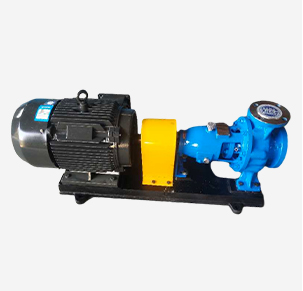English
- Afrikaans
- Albanian
- Amharic
- Arabic
- Armenian
- Azerbaijani
- Basque
- Belarusian
- Bengali
- Bosnian
- Bulgarian
- Catalan
- Cebuano
- Corsican
- Croatian
- Czech
- Danish
- Dutch
- English
- Esperanto
- Estonian
- Finnish
- French
- Frisian
- Galician
- Georgian
- German
- Greek
- Gujarati
- Haitian Creole
- hausa
- hawaiian
- Hebrew
- Hindi
- Miao
- Hungarian
- Icelandic
- igbo
- Indonesian
- irish
- Italian
- Japanese
- Javanese
- Kannada
- kazakh
- Khmer
- Rwandese
- Korean
- Kurdish
- Kyrgyz
- Lao
- Latin
- Latvian
- Lithuanian
- Luxembourgish
- Macedonian
- Malgashi
- Malay
- Malayalam
- Maltese
- Maori
- Marathi
- Mongolian
- Myanmar
- Nepali
- Norwegian
- Norwegian
- Occitan
- Pashto
- Persian
- Polish
- Portuguese
- Punjabi
- Romanian
- Russian
- Samoan
- Scottish Gaelic
- Serbian
- Sesotho
- Shona
- Sindhi
- Sinhala
- Slovak
- Slovenian
- Somali
- Spanish
- Sundanese
- Swahili
- Swedish
- Tagalog
- Tajik
- Tamil
- Tatar
- Telugu
- Thai
- Turkish
- Turkmen
- Ukrainian
- Urdu
- Uighur
- Uzbek
- Vietnamese
- Welsh
- Bantu
- Yiddish
- Yoruba
- Zulu
Telephone: +86 13120555503
Email: frank@cypump.com
Sep . 15, 2024 17:20 Back to list
High-Quality Sewage Pumps for Efficient Wastewater Management
Understanding Sewage Pumps An Essential Component of Waste Management
Sewage pumps play a crucial role in modern waste management systems, ensuring that wastewater is efficiently transported from homes and businesses to treatment facilities. These pumps are specifically designed to handle the challenging conditions associated with sewage, including solid waste and other debris that typical water pumps cannot manage. Understanding how sewage pumps work and their importance can help in making informed decisions regarding their use and maintenance.
The Function of Sewage Pumps
Sewage pumps are primarily used to move wastewater from lower to higher elevations. In many urban and suburban areas, gravity alone cannot ensure that sewage flows towards treatment plants. Therefore, sewage pumps are installed in basements, lift stations, or near the sewage source to facilitate the upward movement of waste. They are essential in areas where the sewer line is situated above the level of the property.
Typically, there are two main types of sewage pumps submersible and pedestal pumps. Submersible pumps are designed to operate underwater, completely submerging in the sewage pit or basin. This type of pump has the advantage of being quieter and requiring less space since they are located below the surface. On the other hand, pedestal pumps are mounted above the sewage level, making them easier to maintain and service since the motor remains above the wastewater.
Key Features and Benefits
Sewage pumps are built with robust materials to withstand corrosive and abrasive elements present in wastewater. They often feature strong impellers and durable casings that can handle solids, preventing clogs and ensuring smooth operation. Additionally, many modern sewage pumps are equipped with automatic systems that turn the pump on and off based on water levels, enhancing efficiency and reducing energy consumption.
sewage pump

The benefits of using sewage pumps extend beyond just facilitating waste removal. They help prevent backups and overflows that can lead to hazardous situations, including potential health risks and environmental concerns. By ensuring a reliable flow of wastewater, sewage pumps contribute to the overall efficiency of sewage treatment processes, ultimately protecting public health and the environment.
Maintenance and Troubleshooting
Like all mechanical equipment, sewage pumps require regular maintenance to ensure optimal operation. Routine checks should include inspecting the electrical components, cleaning the intake screens, and inspecting for any signs of wear or damage. Additionally, homeowners can take preventive measures by avoiding flushing non-biodegradable items down the toilet, as these can cause unnecessary strain on sewage pump systems.
Common issues with sewage pumps include clogs, electrical failures, and mechanical breakdowns. Clogs can often be resolved by removing obstructions manually or using specialized tools. However, frequent clogs may indicate a more significant issue with the plumbing system. It is advisable to consult a professional plumber for persistent problems to avoid extensive damage and costly repairs.
Conclusion
In conclusion, sewage pumps are an indispensable part of wastewater management, ensuring that sewage is transported effectively to treatment facilities. By understanding their function, benefits, and maintenance needs, property owners can ensure that their sewage systems operate smoothly and efficiently. Investing in a quality sewage pump and adhering to a regular maintenance schedule can prevent costly repairs and protect both the home environment and public health. With the right knowledge and care, sewage pumps can serve their purpose effectively for many years.
-
ISG Series Vertical Pipeline Pump - Chi Yuan Pumps Co., LTD.|Advanced Hydraulic Design&Energy-Efficient Solutions
NewsJul.30,2025
-
ISG Series Vertical Pipeline Pump - Chi Yuan Pumps Co., LTD.
NewsJul.30,2025
-
ISG Series Vertical Pipeline Pump - Chi Yuan Pumps Co., LTD.|energy-efficient fluid handling&industrial durability
NewsJul.30,2025
-
ISG Series Vertical Pipeline Pump - Chi Yuan Pumps | Advanced Engineering&Industrial Efficiency
NewsJul.30,2025
-
ISG Series Pipeline Pump - Chi Yuan Pumps | High Efficiency, Energy Saving
NewsJul.30,2025
-
ISG Series Vertical Pipeline Pump-Chi Yuan Pumps|High Efficiency&Reliable Performance
NewsJul.29,2025










